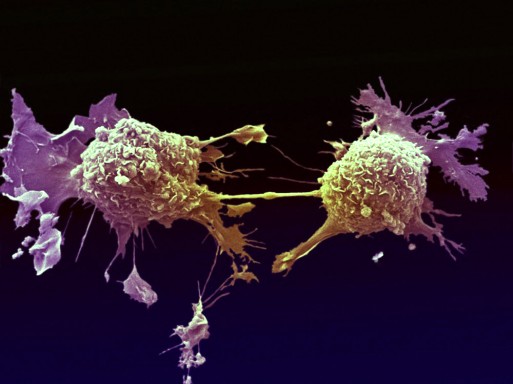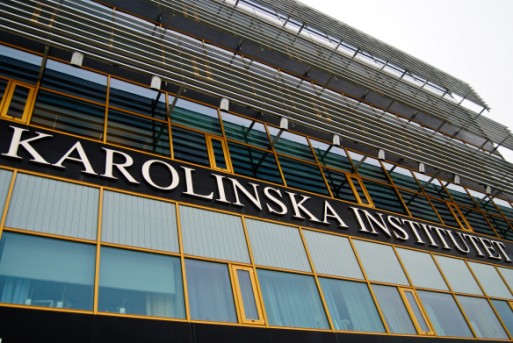Swedish scientists at the Karolinska Institute in Stockholm have been conducting explosive cancer treatment with a new substance called Vacquinol-1. The research team published their findings in Cell last Thursday, which focused specifically on combatting one of the most common but unrelenting forms of brain cancer: glioblastoma multiforme (GBM).
After a five-day period in which scientists fed Vacquinol-1 to mice with GBM, they found that the substance had increased activity in the cancer cells to the point that they simply “exploded.” “Vacquinols stimulate death by membrane ruffling, cell rounding, massive macropinocytic vacuole accumulation, ATP depletion, and cytoplasmic membrane rupture of [glioblastoma cells],” explained the Karolinska Institute report. Essentially, that means the activity of the mice’s glioblastoma cells was rendered so hyper-active that the cells had no choice but to explode and die. “When cancer cells were filled with a large amount of vacuoles,” says the Institute, “the cell membranes, the outer wall of the cell, collapsed.”
“…the substance had increased activity in the cancer cells to the point that they simply “exploded.””
The average survival time of mice with GBM who didn’t consume Vacquinol-1 was about a month, whereas mice treated with the substance lived up to 80 days.
Those suffering from glioblastoma multiforme are given a relatively short amount of survival time – 15 months, usually – and the potential of Vacquinol-1 to combat cancerous cell growth is an exciting step for those with the terminal illness.
“Those suffering from glioblastoma multiforme are given a relatively short amount of survival time – 15 months, usually – and the potential of Vacquinol-1 to combat cancerous cell growth is an exciting step for those with the terminal illness.”
“We now want to try to take this discovery in basic research through preclinical development and all the way to the clinic. The goal is to get into a phase 1 trial,” says one of the Institute’s researchers Patrik Ernfors, “This is an entirely new mechanism for cancer treatment. A possible medicine based on this principle would therefore attack the glioblastoma in an entirely new way.”
You may enjoy:
- The Verge’s coverage of Vacquinol-1 research.
- Visiting The Cancer Treatment Center of America’s website for more information.
- Learn more about glioblastoma from the American Brain Tumor Association.

 ‘Exploding’ Cells? Swedish Scientists Discover Potential Cancer Treatment for Glioblastoma Multiforme
‘Exploding’ Cells? Swedish Scientists Discover Potential Cancer Treatment for Glioblastoma Multiforme





 Having an Estate Plan Is Essential – So Is Discussing It With Your Children
Having an Estate Plan Is Essential – So Is Discussing It With Your Children
 The Healing Sound of Singing Bowls
The Healing Sound of Singing Bowls
 “Summons” by Aurora Levins Morales
“Summons” by Aurora Levins Morales














